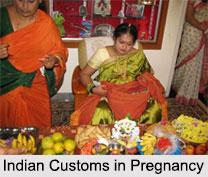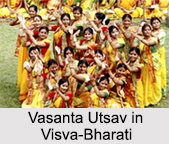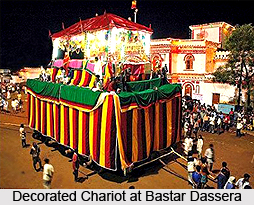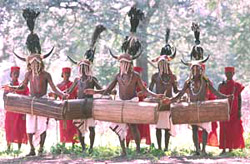 Indian Customs in Pregnancy are presently not followed as before, however, they are given far more importance than the other customs in the Hindu society. In Indian culture, certain belief exist which helps in good pregnancy and its effect, as well as harmful permits. During pregnancy, both the parents are at risk to the effects of an eclipse as per Indian myths. The pregnant woman should never go close to a dead body, even if it"s her near relative. As per Indian myths, the would-be mother should never cross a stream, especially in the dark or in the evenings, or else the water spirit can give an evil influence on her.
Indian Customs in Pregnancy are presently not followed as before, however, they are given far more importance than the other customs in the Hindu society. In Indian culture, certain belief exist which helps in good pregnancy and its effect, as well as harmful permits. During pregnancy, both the parents are at risk to the effects of an eclipse as per Indian myths. The pregnant woman should never go close to a dead body, even if it"s her near relative. As per Indian myths, the would-be mother should never cross a stream, especially in the dark or in the evenings, or else the water spirit can give an evil influence on her.
Traditions of Pregnancy
In traditional Indian beliefs, during pregnancy the would-be mother should keep herself away from eating "hot foods" and try to eat "cold foods" in order to equalize the balance. "Hot foods" include fruits such as banana papaya, and coconut, meat, fish, chicken, potatoes, red chillies and okra. "Cold foods" include dairy products (yoghurt and buttermilk specially), vegetable and other fruits. After giving birth, women should eat "hot foods" to even out the balance.
It is general for women who do not live in joint families should go to their parents or parents-in-law"s house during pregnancy. Once the baby is born, woman starts her captivity. There are a lot of different traditions surrounded by different communities which can differ from family to family. Special food recipes and remedies are passed down throughout generations. The mother does not breastfeed until the baby is 6 months old and can generally feed the child up to 3 years of age.
Rituals of Pregnancy
In India, when a male child is born a "Thali" is beaten with a stick by friends and relatives. In the case of a girl, a fan, used for winnowing, is beaten. Shadh Ceremony is a remarkable Bengali ceremony which is performed when a pregnant woman has completed seven months of pregnancy. The first Shadh Ceremony is held on the 5th month of pregnancy. The first item to be eaten in Shadh Ceremony is rice with "shukto", a bitter vegetable dish that is supposed to rouse the hunger and is helpful to the liver. Numerous other vegetable dishes and "dal" will go after. Jatakarma ceremony greets the child into the family. The father touches and smells the child and whispers spiritual verses (Mantras) into the ears of the baby. All this is performed to assure that the baby is in safe and secure surroundings.
"Godh Bharai" Ceremony is done at the seventh month of pregnancy. Here, the would-be mother is filled with gifts and blessings. This is a Hindu ritual of pregnancy. "Punsavana Amskara" Ceremony is done by Indian women during pregnancy. "Neyyu Kudikkan Konduvaral" is done by the Malabar Muslims of Kerala and Karnataka. On the 4th month, the would-be mother is send to her father"s house to live for 1 or 2 months. "Palla Kanan Pokk" is done by Malabar Muslims after 1 or 2 months, the would-be mother returns to her husband"s house. This time her in-laws and other relatives visit her with bakery goods.





